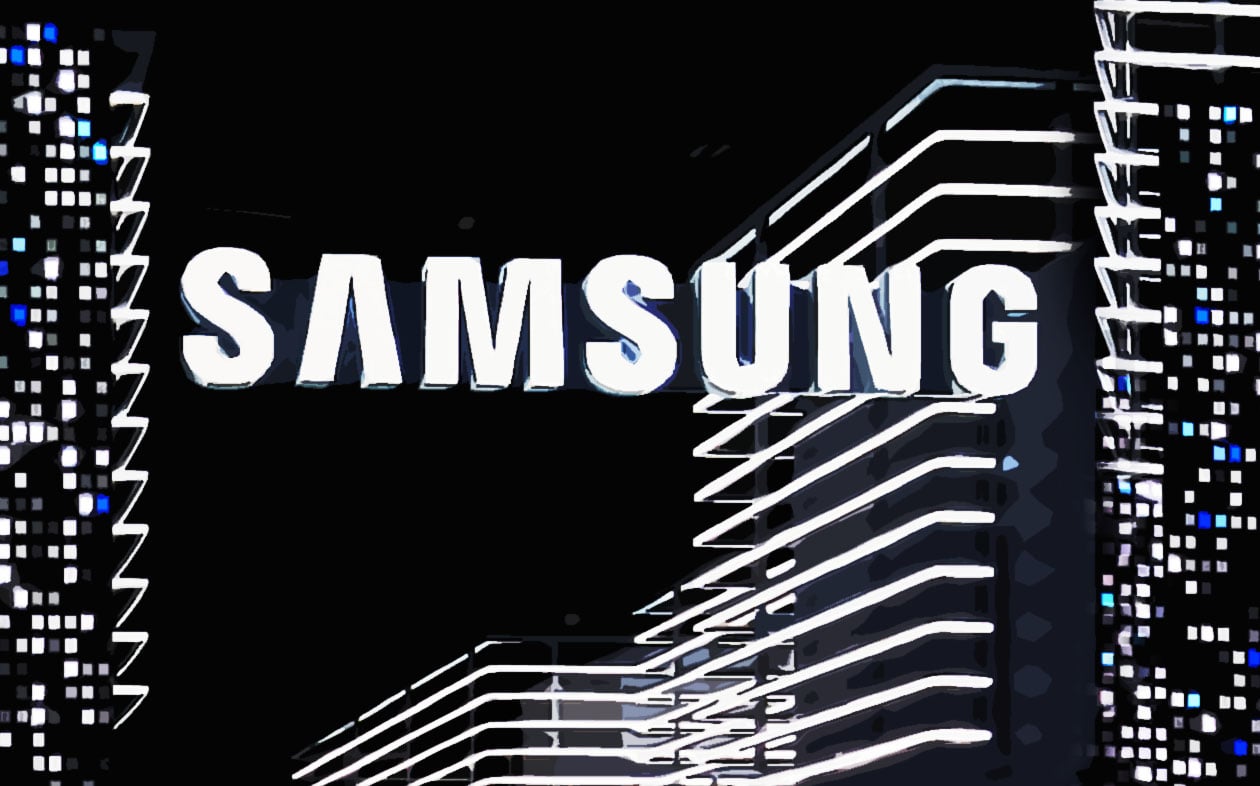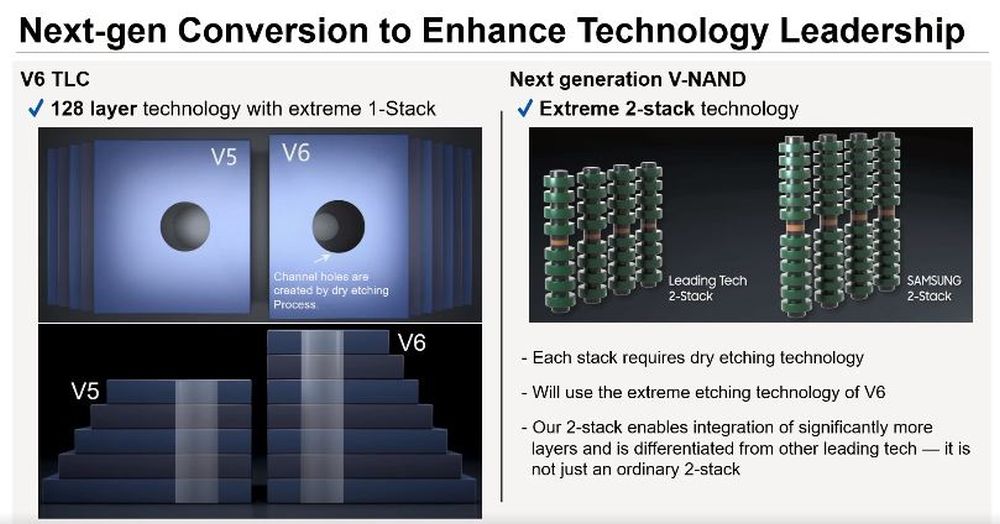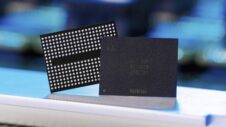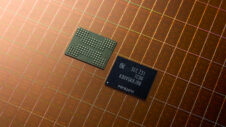Samsung is now developing the 7th generation V-NAND solution and as you may recall, industry reports dating back to September were claiming that Samsung's next-gen V-NAND will have 176 layers. This may very well still be true, however, according to Korean news outlets citing Samsung during its investors forum on Monday, it is technically possible for Samsung's V-NAND to boast an impressive 256-layer configuration using the company's extreme 2-stack technology.
More V-NAND layers technically mean more memory is obtainable in a smaller physical space. The process of shrinking down powerful components represents the foundation upon which the mobile world has been built, so the company's V-NAND advancements are not easily ignored.
Samsung's sixth-generation V-NAND can achieve up to 128 layers using single-stack technology. However, senior VP at Samsung's memory business unit, Han Jin-man, revealed on Monday that 256-layer stacking is mathematically possible through extreme 2-stack technology.
No guarantee of Samsung Mobile's V-NAND solution to have 256 layers
It's important to make the distinction between the terms possible and probable. Yes, it is mathematically possible to achieve 256-layer V-NAND using extreme 2-stack technology, but the probability of this happening depends on more than just the technical side of things. The actual number of layers stacked in the chip could change depending on consumers’ needs and market conditions, revealed Han Jin-man.
In a way, the market may have not caught up with the technology yet, because according to the senior VP, the key question to ask isn't how much you can stack layers but rather what's the most optimal number of layers for the market at this point?
In other words, the next-gen V-NAND solution to be employed by Samsung's mobile division in the future may or may not have 256 layers and this will depend on how the market evolves. If the market asks for this, it could be that the next-gen V-NAND employed by Samsung mobile will have only 176 layers as opposed to 256, or it could go the other way around. We'll keep you posted.








